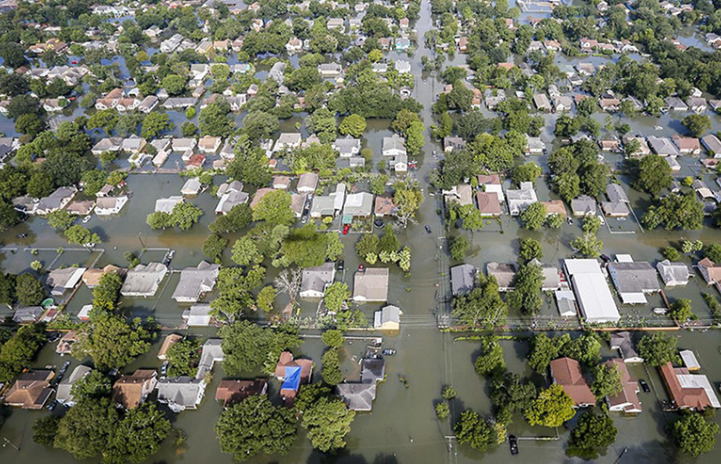This post was originally published in the Houston Chronicle.
Housing vouchers are giving recipients in Houston the ability to secure homes in areas that offer better access to opportunities and lower flood risks. The voucher program is a critical piece of the nation’s housing system, providing housing assistance to millions of Americans and allowing them to secure homes on the private market. Here in Houston the program is likewise essential — housing more than 50,000 people on 18,000 vouchers through the Houston Housing Authority.
The Kinder Institute for Urban Research analyzed three years of voucher data and found that about 10% of recipients moved during those three years. Those movers tended to relocate to homes with higher rents, in areas with higher median incomes. A wide array of research has shown that regardless of a family’s own income, living in areas with higher incomes can lead to better outcomes, especially for children.
HHA has worked to open areas with greater opportunity to voucher holders by offering higher rent subsidies for homes in specific target areas — often places with higher incomes and higher-performing schools.
However, limits on the voucher program’s reach are preventing it from helping more Houstonians access opportunity. The biggest problem is the low number of available vouchers. The wait list for affordable housing from HHA stretches beyond 100,000 eligible applicants. Expansion of the voucher program requires federal funding and additions often are minor.
An element that is preventing the program from functioning as effectively as it could is the fact in Texas landlords can legally refuse vouchers.
Just this week the U.S. Housing and Urban Development Department announced funding for an additional 15,000 vouchers nationwide, with 1,546 coming to Texas and 272 new vouchers coming to Houston. Discussions of ways to broaden the program have become a central tenet of the presidential campaigns of multiple Democratic candidates, including some, such as Julián Castro, who are proposing providing vouchers for everyone who is eligible.
The voucher program uses the private housing market to help address affordable housing needs and augments programs that provide traditional government housing for the poor. Given its private market orientation, the program meshes well with Houston’s and Texas’ market-driven approach to challenges. And, with evidence that the program is working well for those who can access it, it makes sense to find ways to expand it and ensure it is working to its full potential.
An element that is preventing the program from functioning as effectively as it could is the fact in Texas landlords can legally refuse vouchers. While there are multiple programs attempting to encourage wider acceptance of vouchers by working with voucher holders and landlords to make the process easier, source-of-income discrimination means that many homes in higher opportunity areas are off the table for voucher holders. Texas could make such discrimination illegal or empower cities to pursue their own approaches to ensure that vouchers holders can find homes in all parts of our community. Taking this action would strengthen an already valuable tool and aid both local jurisdictions and the state in efforts to address our collective housing challenge.
Moving to opportunity also means moving away from risk. In Houston this means avoiding flood-prone areas. Our research found that vouchers holders who moved tended to leave the current 500-year flood plain. However, some voucher holders continue to move into at-risk areas and many who are not moving remain in problem areas. Further education and information about potential flood risks is critical for all voucher holders.

Kinder Institute research has shown that housing voucher holders in Houston tend to move toward opportunity and away from risk, which means leaving the area's current 500-year flood plain.
Reducing the number of voucher holders in risky areas can not only protect lives and property, but reduce the cost of supporting longer-term recovery when homes and lives are disrupted.
Our research shows that the voucher program is providing recipients with the opportunity to move into higher income and less flood-prone areas. Pursuing action to expand the program and enabling recipients to live throughout our region in safe, affordable homes will pay dividends not just for our neighbors who use vouchers, but for our entire region.

